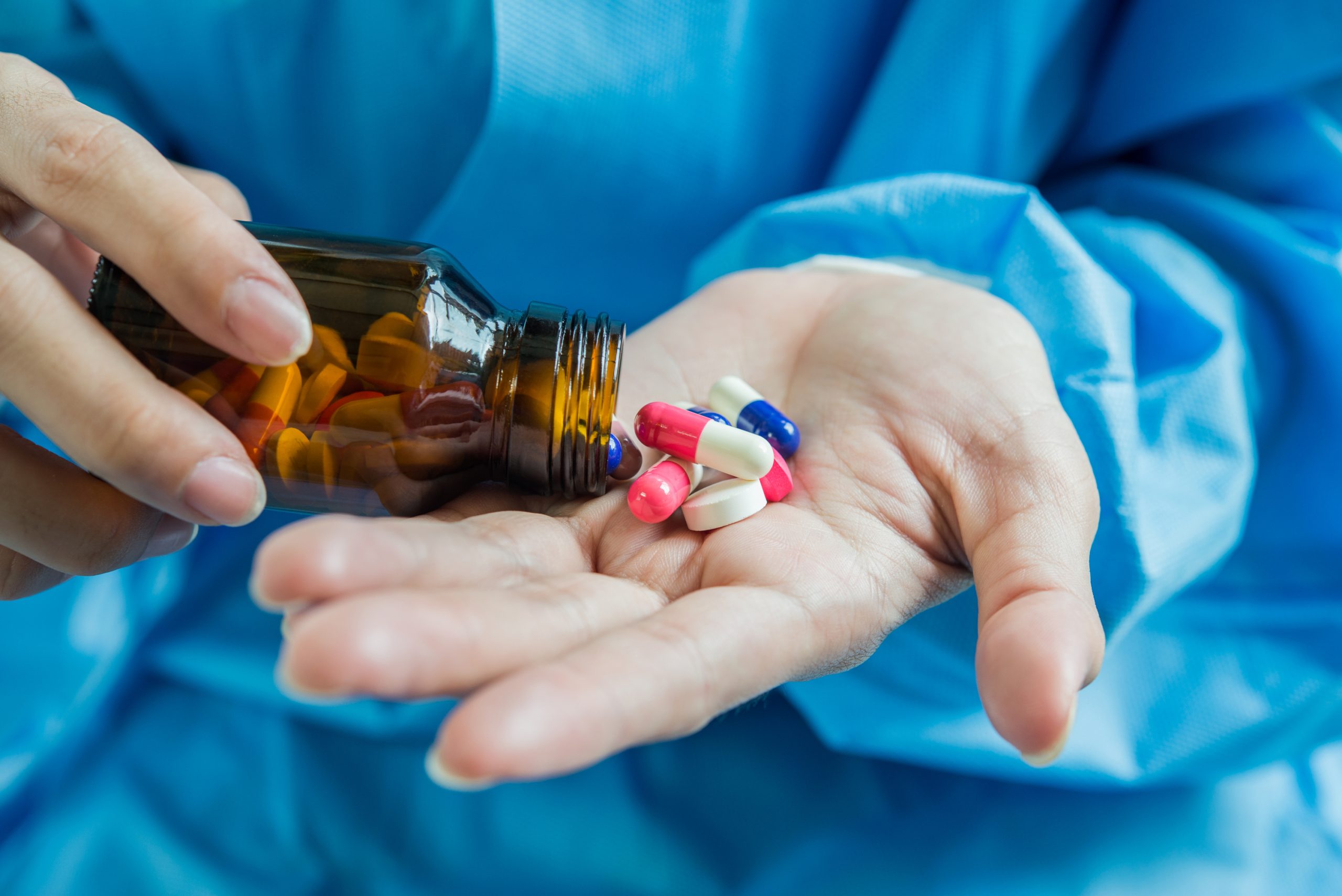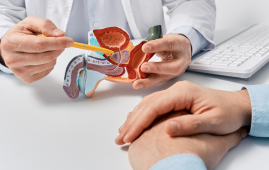

A decades-old antibiotic that has been transformed into a prophylactic tablet is about to be introduced in the United States as a potent new tool in the ongoing war against sexually transmitted infections.
When taken after condomless sex, DoxyPEP, or doxycycline administered as a post-exposure prophylaxis, has been found to drastically lower the risk of chlamydia, gonorrhea, and syphilis.
The Centers for Disease Control and Prevention (CDC), which is creating national guidelines for clinicians, will need to balance the need to prevent the spread of additional antibiotic-resistant strains against the necessity of containing the record-high incidence of STIs that affect millions of Americans.
“Innovation and creativity matter in public health, and more tools are desperately needed,” senior CDC official Jonathan Mermin told AFP.
The recommendations, though, which are scheduled for publication this summer, will still be specific.
Only the most vulnerable transgender and LGBT people with history of previous infection will likely be their targets.
As word gets out, some clinics are already writing DoxyPEP prescriptions.
Malik, a 37-year-old man from Washington, claims that his doctor recently informed him that he may begin using doxycycline as a “morning-after pill” following unsafe sex. Malik has had to use this medication twice, including when a partner failed to inform him that he had removed his condom.
A reduction of two thirds
After an increase of nearly ten years, the number of reported cases of the three bacterial illnesses in the United States reached 2.5 million in 2021.
There are several reasons for the increase, including the fact that fewer individuals are using condoms now that PrEP, a daily drug that greatly reduces the risk of catching HIV, is available.
Additionally, it is advised that those using PrEP get screened every three months, which should help identify infections more quickly.
Then there is the fundamental epidemiological principle that the more people who are infected, the more people they can infect.
Three out of four trials using DoxyPEP showed it to be effective.
“What we found was there was about a two-thirds reduction in sexually transmitted infection every three months,” Annie Luetkemeyer, who co-led a US trial, told AFP.
A physician-scientist from the University of California, San Francisco recruited 500 individuals from the transgender and men-only communities in Seattle and San Francisco.
Chlamydia and syphilis showed the greatest efficacy, both of which were reduced by around 80%, while gonorrhea was reduced by about 55%. The negative consequences were minimal.
Resistance to antibiotics
Concerns concerning the development of antibiotic resistance, notably in the rapidly evolving gonorrhea, have been raised as doxycycline’s availability has been expanded.
Early study, though, hasn’t indicated anything alarming.
Researchers evaluated gonorrhea samples from breakthrough infections in the DoxyPEP group and compared them to the group who didn’t receive the tablet, according to Connie Celum of the University of Washington, who co-led the US study, for AFP.
Even while they discovered a little greater percentage of resistant gonorrhea in the DoxyPEP group, she claims this does not necessarily mean the drug is to blame for the resistance; rather, it may just indicate that the drug is less effective against strains that are already resistant.
DoxyPEP may even encourage prudent antibiotic management, reducing the frequency of infections and the consequent need for antibiotic therapy.
The number of persons needing antibiotic treatment with the current frontline treatment medicine, ceftriaxone, which doctors are eager to protect, might be reduced if gonorrhea cases were reduced by about 50%.
More extensive research is needed on the effects of STIs as well as “bystander” bacteria like Staphylococcus aureus, which dwell within people’s nostrils but can occasionally cause life-threatening illnesses.
‘Additional Tool’
While happy he could take DoxyPEP as a last resort, Malik expressed his desire for more guys to be condom-willing. Since migrating to America from South Asia, he has encountered relatively less interest when declaring his unwillingness to engage in condom-free sex on the dating app Grindr.
But according to Stephen Abbott, a physician at the Whitman-Walker clinic in Washington who also uses and prescribes DoxyPEP, it’s important to meet individuals where they are.
“From speaking with patients, and being part of the community that’s now on PrEP… I think the age of prevention through condoms is fading,” he told AFP.
A 42-year-old guy in London who manages a cultural group told AFP that DoxyPEP had become popular among gay partygoers worldwide and that he had acquired it on the underground market and through a boyfriend who purchases in large quantities in Mexico.
Even though he did experience one breakout case of throat gonorrhea, it had mainly been successful for him. He expressed excitement for the UK to embrace similar advice so that individuals would have the necessary knowledge and wouldn’t have to rely only on their best judgment when determining the appropriate amount.
DoxyPEP won’t be “the answer” to the STI problem, according to Luetkemeyer, and the creation of a gonorrhea vaccine is receiving a lot of attention.
“But I’m optimistic… I think this is an additional tool,” she said.
more recommended stories
 Advanced Prostate Cancer and Serial ctDNA Analysis
Advanced Prostate Cancer and Serial ctDNA AnalysisKey Takeaways Serial liquid biopsies using.
 Tuberculosis Breakthrough with Experimental Antibiotics
Tuberculosis Breakthrough with Experimental AntibioticsKey Takeaways Experimental antibiotics disrupt a.
 National Healthy Longevity Trial Receives Federal Support
National Healthy Longevity Trial Receives Federal SupportKey Summary Up to $38 million.
 Vascular Health Linked to Early Alzheimer’s Brain Changes
Vascular Health Linked to Early Alzheimer’s Brain ChangesKey Takeaways Brain vascular health is.
 Red Blood Cells Improve Glucose Tolerance Under Hypoxia
Red Blood Cells Improve Glucose Tolerance Under HypoxiaKey Takeaways for Clinicians Chronic hypoxia.
 Nanoplastics in Brain Tissue and Neurological Risk
Nanoplastics in Brain Tissue and Neurological RiskKey Takeaways for HCPs Nanoplastics are.
 AI Predicts Chronic GVHD Risk After Stem Cell Transplant
AI Predicts Chronic GVHD Risk After Stem Cell TransplantKey Takeaways A new AI-driven tool,.
 Red Meat Consumption Linked to Higher Diabetes Odds
Red Meat Consumption Linked to Higher Diabetes OddsKey Takeaways Higher intake of total,.
 Pediatric Crohn’s Disease Microbial Signature Identified
Pediatric Crohn’s Disease Microbial Signature IdentifiedKey Points at a Glance NYU.
 Nanovaccine Design Boosts Immune Attack on HPV Tumors
Nanovaccine Design Boosts Immune Attack on HPV TumorsKey Highlights Reconfiguring peptide orientation significantly.

Leave a Comment